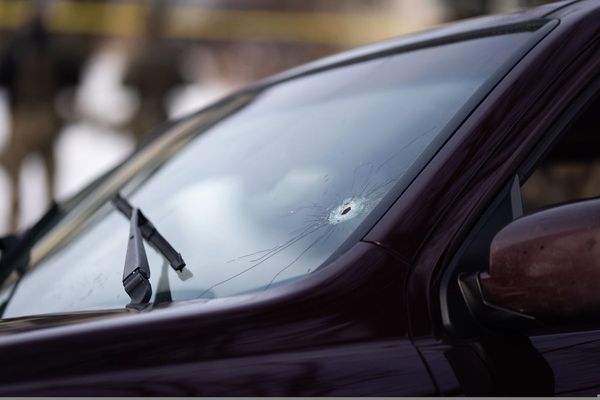
Four months on from becoming commissioner of the Metropolitan police, this should be the honeymoon period for Sir Mark Rowley. Instead, a nightmare is engulfing his force and commissionership that has been years – if not decades – in the making.
The task facing Rowley is putting his force’s reputation back together again, at speed, as public incredulity and anger grows, while conducting the crime-fighting business of the Met in a demanding city, under intense media gaze, squeezed budgets, antiquated technology systems, historic low public confidence, a fed-up workforce and large sections of his force who think the world is out to get them.
The Met has admitted that David Carrick, convicted of 85 serious offences, including 48 rapes, should never have been allowed to join the force – or be kept on despite complaints against him, enabling him to use his status and protection as an officer to carry out his attacks.
Rowley is trying to show that the Met under his leadership understands the scale of the problem and is fixing it. Central to this is a review of every officer and staff member who in the past decade has faced an allegation of domestic or sexual abuse.
The Met say that is 1,633 cases involving 1,071 people.
Officers are using the Centurion database that hold the records and data for the Directorate of Professional Standards. They are looking at the allegations, how they were handled, and and whether they would be viewed differently now. They are looking at whether the assessments were made in isolation, as happened with Carrick. There is concern that in the past, the Met failed to look at a series of complaints and intelligence when making their assessments. “There will be alarm bells if there are multiple reports about an individual,” said a source.
Rowley has promised a letter to the home secretary and London mayor on 31 March about what the review has found.
He was questioned about this plank of his strategy in a series of broadcast interviews, as anger over Carrick reverberated. The former Met commissioner John Stevens called mornings such as Tuesday a “big hat day”, when the commissioner needed to be seen and fronting the Met’s message.
A former senior Met officer who dealt with multiple crises said: “He’s putting himself upfront on this all the time. That is leadership – but where are the senior colleagues?”
Rowley has at times seemed a one-man show preaching the gospel of reform. Today the executive level of the Met is in the midst of a reshuffle, at commander and deputy assistant commissioner levels, as Rowley continues to bring in people more instinctively supportive.
When Cressida Dick left Scotland Yard and a sinking Met in April 2022, after being ousted as commissioner after a series of scandals, lines of officers, including senior ones still there, cheered her out like a hero.
Later this week the commissioner will unveil details of his plan for “reform at speed” that he believes is necessary, though some in the Met believe it is not always as thought-through as needed. He believes time and public patience is something the Met no longer has.
He is working to change the culture. As the former senior officer said: “The Met is an oil tanker, cultural change is hugely difficult and in a crisis, more so.”
A series of disasters are expected between now and the summer, with two reports due stemming from the murder of Sarah Everard by the then serving Met officer Wayne Couzens, and both predicted to be damning of the force, its practices and culture. There will also be fresh revelations of the Met failing women.
Public confidence in the Met, for which the traditional key indicator plunged to 49% under Dick, is currently at 50% – and that is before taking into account the fresh anger over Carrick and other chapters of imminent reputational damage for the force.
The senior former officer said the scale of reform the Met needed matched that during the Northern Ireland peace process, when the Royal Ulster Constabulary was abolished and replaced by the Police Service of Northern Ireland. “That was the single most difficult and radical change in UK policing history. The scale of culture change is not dissimilar to the Met.”
Some internally have said Rowley’s message to the public can risk being too negative about a force where the majority are dedicated public servants. This week the Met took a day to arrest a suspect for the Camden funeral shooting. Officers give up rest days to serve, and some are paid a salary in a city so expensive that they need food banks to live.
The former senior officer said: “You can have fine words from the commissioner, but making it change at an operational level is very difficult. You have not got leaders at the right level, the sergeant level, who have bought into it.”
Rowley cannot do it alone. Just like the people of London rely on the Met rank and file, the commissioner will need them to deliver on the streets.







